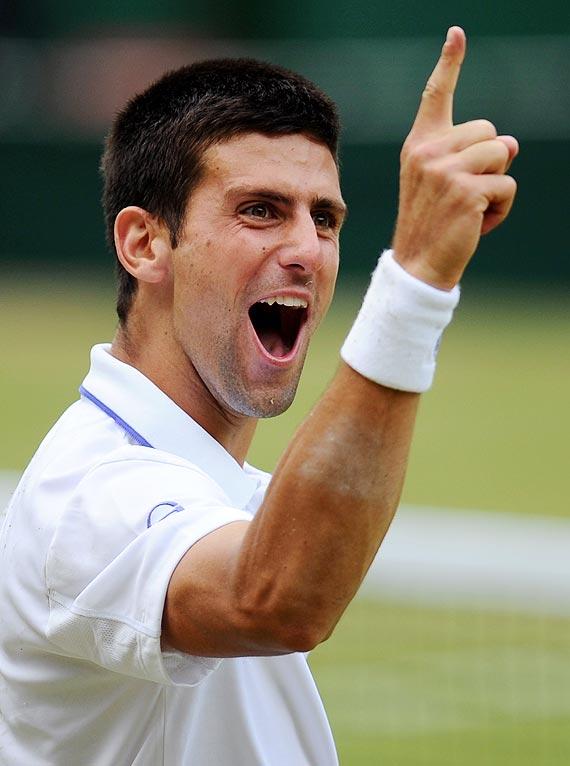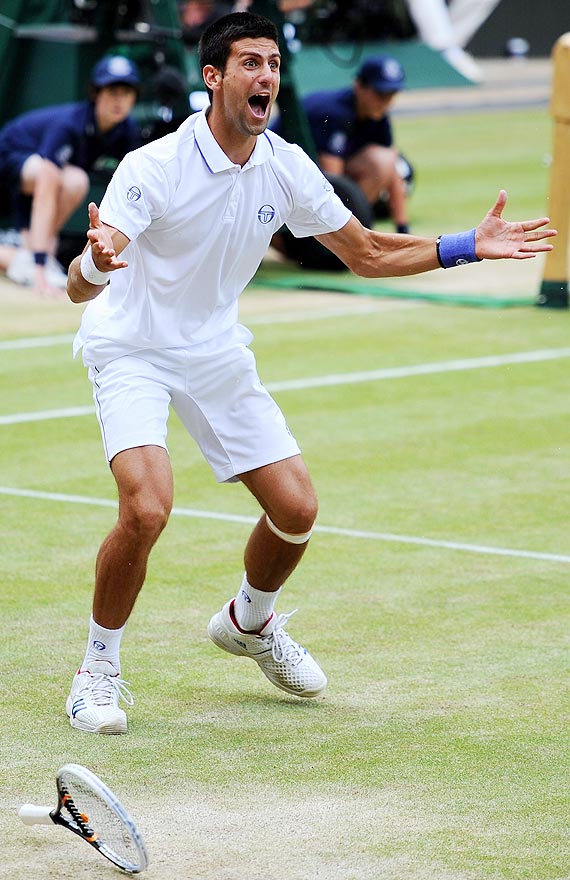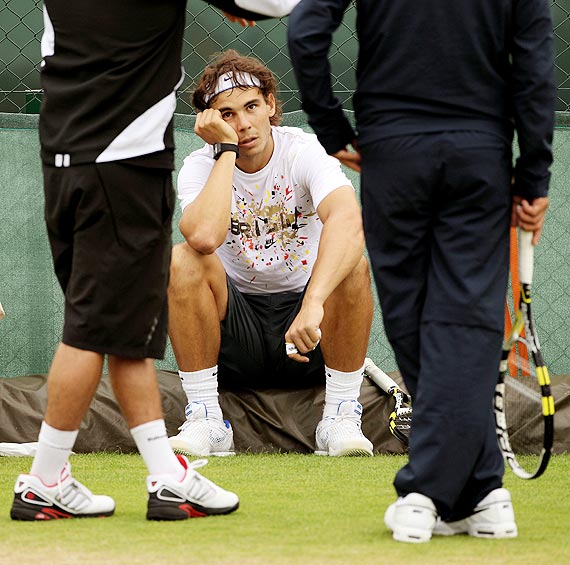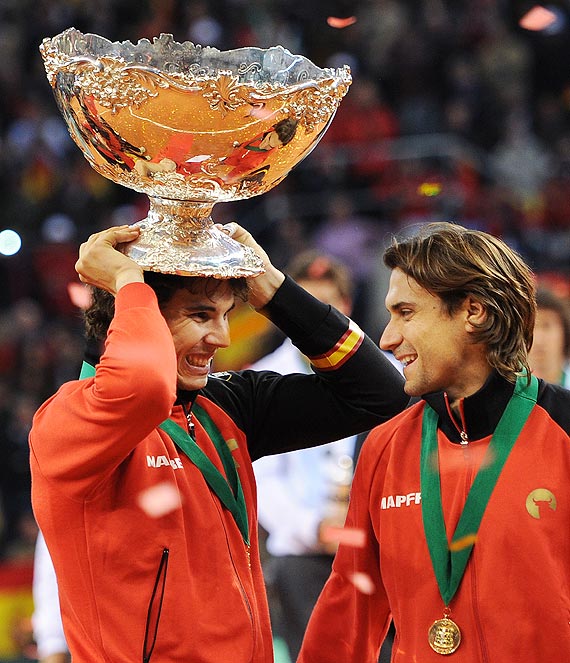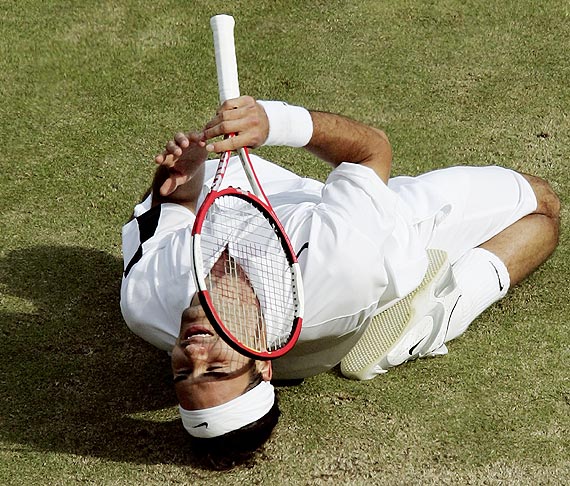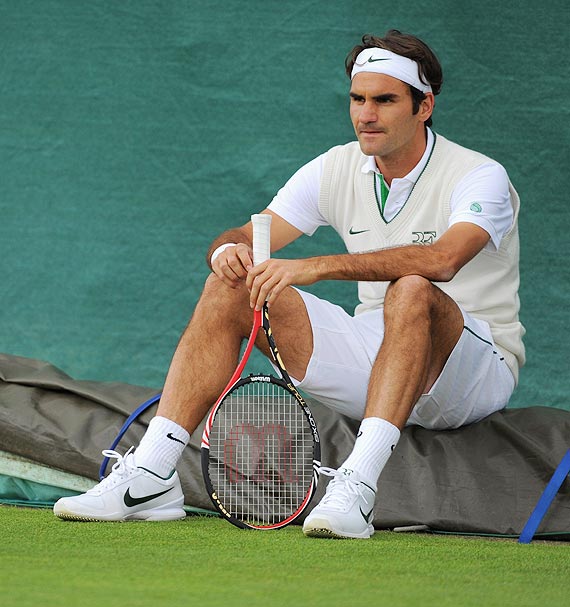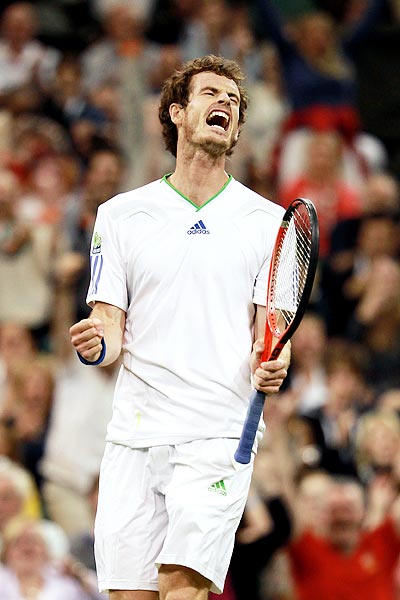 | « Back to article | Print this article |
Tennis 2011: Djokovic clear winner in four-horse race
For tennis aficionados, 2011 will always remain an unusual year. Used to watching Roger Federer and Rafael Nadal share the big titles between them, the year marked the coming of age of another player.
Novak Djokovic (70-6, 10 titles)
Not since 2005 has any player managed to break the dominance of the top two. Novak Djokovic not only managed that but in the process ensured the year became a one-man show.
The 24-year-old had played a supporting role to the Federer-Nadal combine for the past four years or so, spending a record 91 weeks as the world no.3 in the process.
However, 2011 was the year of Djokovic. The Serbian started by winning his second Australian Open title and, thereafter, embarked upon a 41-match-winning streak that witnessed him pocketing titles in Dubai, Indian Wells, Miami, Belgrade, Madrid and Rome.
Spectacular year for Djokovic
His unbeaten run came to an end when he was beaten in four sets by Federer in the semi-finals of the French Open in June.
That result proved a minor blimp though as the Serbian went on to capture the Wimbledon while also taking over the top rank from the player he had vanquished in the final (Nadal).
Another win over Nadal in the US Open final a few weeks later not only ensured Djokovic his fourth major but also meant he had got the better of the Spaniard in all the six finals they had contested in the year.
Fatigue and injuries meant the last few months weren't as productive, that included an early exit from the World Tour finals. However, a haul of three (out of four majors), 10 ATP titles, a 70-6 match record, the year-end top ranking and a record prize money haul (more than $ 12.5 million) ensured it was a spectacular year for Djokovic.
In 2012, onus will be on the Serb to ensure a perfect follow up.
Rafael Nadal (69-15, three titles)
For large parts of 2011 Rafael Nadal played second fiddle to Djokovic, a role the Spaniard was not used to playing.
Losing six major finals -- two of them in Grand Slam tournaments and four Masters series -- to the Serbian was not something Rafa would have expected, considering he had got the measure of his opponents in the last few years.
However, now that he was at the receiving end the Spaniard took it with grace.
Djokovic's total dominance meant Nadal managed to win when either the Serb skipped tournaments or was beaten.
The first instance came in Masters 1000 event in Monte Carlo when, in Djokovic's absence, Nadal captured a seventh straight title in the event. A week later he retained his title in Barcelona, winning the tournament for a sixth time, thereby becoming the first player in the Open Era to win two tournaments at least six times.
Davis cup redemption for Rafa
Having lost two Masters 1000 finals -- Madrid and Rome -- on his favoured clay, Nadal was lent a helping hand by Federer at the French Open, the Swiss accounting for Djokovic in the semi-finals before coming up short in the final himself.
His 10th major title also saw the Spaniard become the second player, after Bjorn Borg, to win on six occasions at the Roland Garros.
A month later, Nadal saw his 20-match winning streak at Wimbledon come to an end at the hands of Djokovic in the final, thereby ending his 57-week stay at the top of the rankings.
The rest of the year was all disappointment for the Spaniard. Redemption came earlier this month when he helped his country secure their fifth Davis Cup title, winning both his singles matches against Argentina in the final.
Roger Federer (64-12, four titles)
The previous year (2010) had ended on a high for Roger Federer. The present began exactly in the same manner.
The Swiss broke idol Stefan Edberg's longstanding record of most wins in the Australian Open (59-8 now). However, before he looked celebrate the same he was sent packing by Djokovic in a surprisingly one-sided semi-final.
There was more misery in store when he lost to the Serbian in their last four clash in Indian Wells, the result dropping him to No. 3 in the rankings.
A fourth loss to Nadal in a Roland Garros final was followed by his first-ever loss at a major tournament after leading by two sets to love (against Jo-Wilfried Tsonga).
Federer, though, had the consolation of ending the year on a high, when he became the first player to win the ATP World Tour finals six times, beating France's Jo-Wilfried Tsonga 6-3, 6-7, 6-3 in the final at the O2 Arena in November.
The Swiss can be under pressure
The Swiss also squandered match-points against Djokovic in the US Open semi-final. A month later he dropped to No.4 in the rankings for the first time since June 2003.
However, having had a poor year by his standards, the Swiss did manage to end it on a high. He snapped a 10-month title-drought (since winning in Doha in January) by winning his fifth Basel title in November.
The following week he won his maiden Paris Masters and ended the season by comfortably retaining his world title (ATP World Tour Finals) in London -- his 70th title in his 100th final appearance.
Come 2012, the Swiss will be under added pressure to end his major drought going back to the 2010 Australian Open.
Andy Murray (56-13, five titles)
Once again it was a year when Andy Murray promised a lot and delivered all but a Grand Slam title.
The Scot had a spectacular run to the Australian Open final at the start of the year but came up short in the match that mattered, losing in straight sets against Djokovic.
A good clay court swing -- he reached the semi-finals in Monte Carlo, Rome and Roland Garros -- was followed by yet another disappointing last four defeat at Wimbledon.
Results started pouring in the second half of the year. A seventh Masters 1000 trophy in Cincinnati was followed by a semi-final appearance at the US Open, making him only the seventh player in the Open Era to make it to the semis in all the four majors in the season.
Thereafter, came the hugely productive Asian swing, when the Scot won three straight titles in Bangkok, Tokyo and Shanghai, the latter helping him rise to No. 3.
Murray eventually finished the year at No.4, following Federer's triumph in London, but it was a successful year nonetheless.
The target for next year will definitely be to win that elusive major title.
